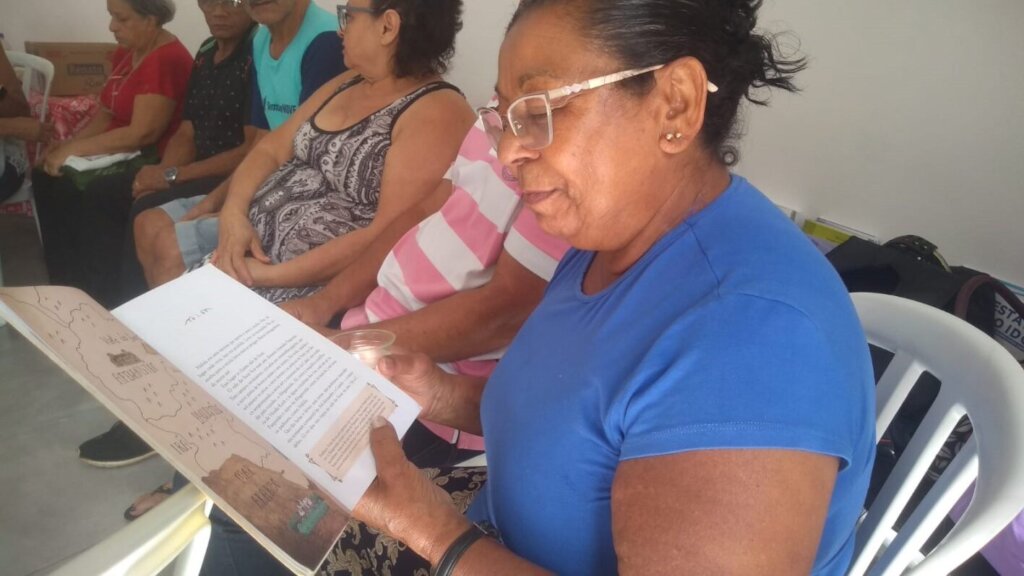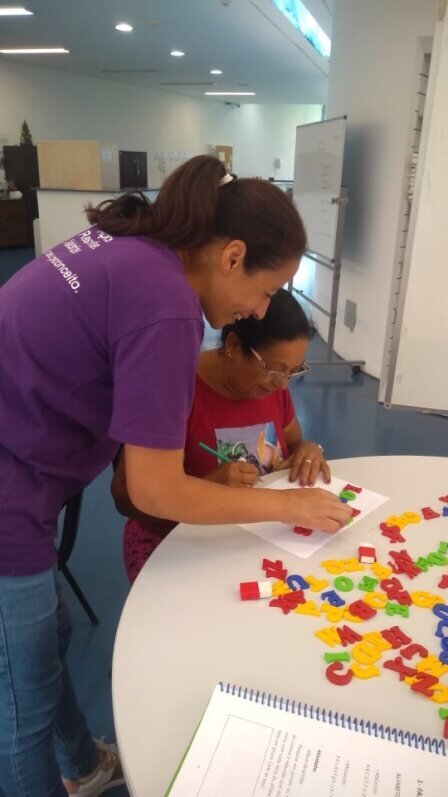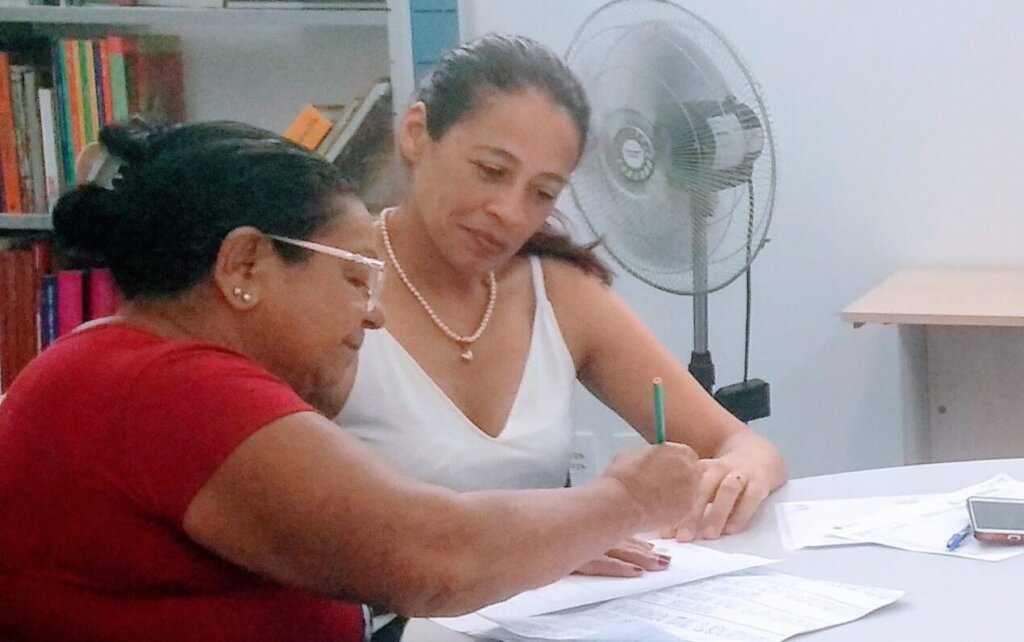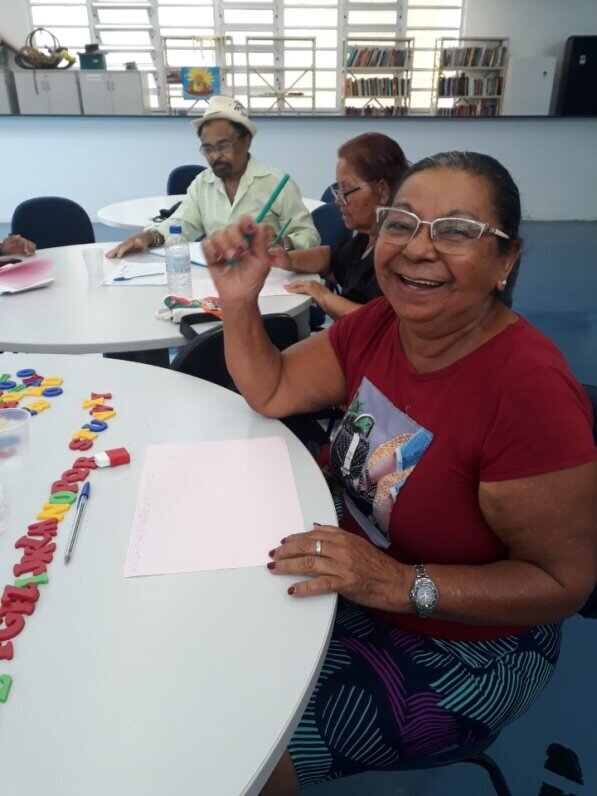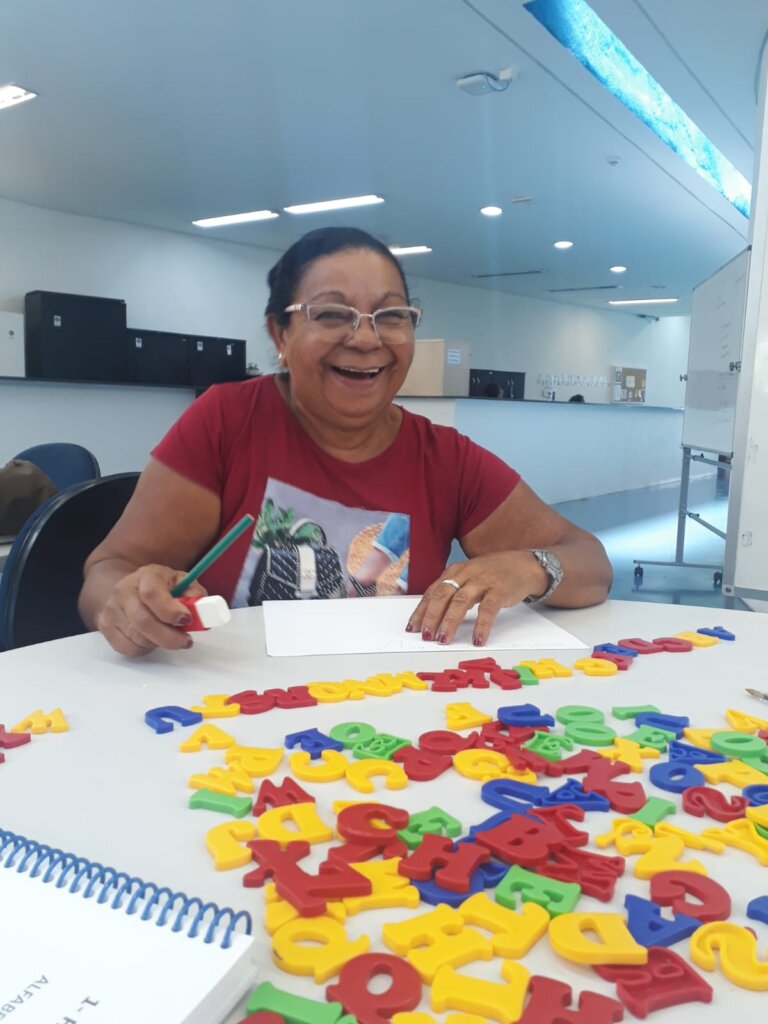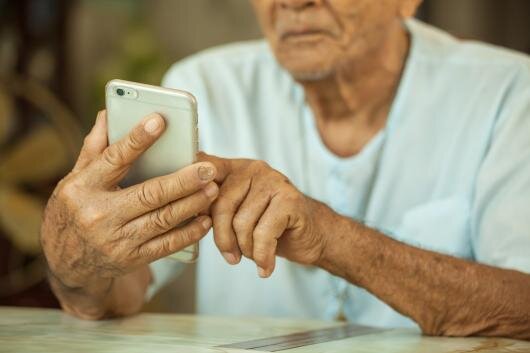By BARBARA ANDREA FRANCO BORGES | Volunteer
With the continuing advancement of digitalization of everyday life, digital literacy has become increasingly necessary. As a consequence, those who are digitally illiterate experience digital exclusion, which increasingly equals social exclusion. Older adults are typically less digitally active and less skilled in digital technologies than younger cohorts. At the Heliopolis Older Persons Center, we offer EJA—Education for Young People and Adults.
As an example, our student, Maria, is a 65-year-old person who has been enrolled at the Instituto Velho Amigo since 2022 and has various health issues. She currently uses a pacemaker, which has already been replaced twice, is hypertensive, and is investigating issues with her kidneys with the medical team. Maria reports that she feels a lot of pain in her spine due to years of work, as she had to work hard to support her three children on her own and, therefore, found very few opportunities to learn to read and write.
However, we argue that expectations of digital literacy should be lowered for older adults with no preexisting digital experience with computers, the Internet, smartphones, or tablets. Even entry-level, basic digital, or foundational skills can be very demanding for older adults with limited or no prior knowledge of and practice with digital technologies.
Dona Maria has been attending the EJA—Education for Young People and Adults—for about a year, but she still needs to be literate. When she started participating in the Education Project workshops at the Instituto Velho Amigo, she had a lot of trouble writing her name. She said that throughout her life, she hadn't found anyone with the patience and dedication to teach her. So, she believed that she could no longer learn to write and read due to her age and the lack of support.
In this way, the older adult was strongly encouraged and motivated to attend the Education Project workshops. Starting in March, a target of two months was set for her to learn to write her name by herself. Previously, she had been missing many workshops due to her health issues and lack of motivation.
He hasn't been absent so far. On a recent occasion, he came to the Literacy workshop with the flu, claiming that even though he was ill, he didn't want to miss the opportunity to learn.
During the Reading Club with coffee workshops, she had her first real interaction with a book: "Malala, the girl who wanted to go to school." She is learning to enjoy interacting with books, poems, and biographies of inspiring people. The contact with technological resources, such as typing on a notebook and tablet, was unprecedented, contributing highly to her motivation and learning.
With her more active participation here at the institute, we've made significant progress in writing her name; she's more confident and autonomous, inspiring other older adults to remain assiduous in the learning process, and she invited two older adults to take part in the Reading Club with coffee workshops because she says that during the workshops it's possible to find a different kind of attention and welcome from other places that promote literacy classes for older people.
Links:
Project reports on GlobalGiving are posted directly to globalgiving.org by Project Leaders as they are completed, generally every 3-4 months. To protect the integrity of these documents, GlobalGiving does not alter them; therefore you may find some language or formatting issues.
If you donate to this project or have donated to this project, you can receive an email when this project posts a report. You can also subscribe for reports without donating.
Support this important cause by creating a personalized fundraising page.
Start a Fundraiser